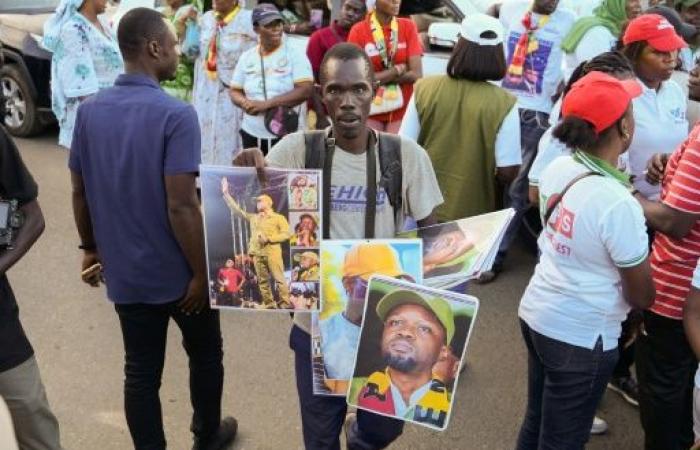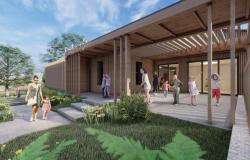The ruling party in Senegal won more than three quarters of the parliamentary seats in Sunday’s legislative elections, indicate the provisional national results published Thursday which confirm its electoral tidal wave.
Pastef, in power since the presidential election in March, won 130 of the 165 mandates at stake and thus obtained the overwhelming majority it demanded to be able to apply its agenda of rupture and social justice, according to a count by AFP and of a party official based on figures communicated by the national vote census commission.
These figures will be final once proclaimed by the Constitutional Council, which can do so within five days if there is no dispute, according to two electoral officials.
The figures from the national commission compile at the national level the results made public at the department level on Tuesday, and which already reflected the triumph of Pastef.
The president and head of the party list, Prime Minister Ousmane Sonko, spoke of a “renewed plebiscite” which prolongs and amplifies the victory of his runner-up Bassirou Diomaye Faye in the presidential election in March, indicates the report of the Council of Ministers on Wednesday .
The large absolute majority of Pastef should favor the implementation by the executive of the project which brought it to power eight months ago.
The executive, which claims to be a “left-wing Pan-Africanism”, intends to lead “a coherent and pragmatic systemic transformation of Senegal”, said President Faye in the Council of Ministers.
He affirmed the need to address “economic and social emergencies” such as the high cost of living and unemployment, while relaunching the economy, “particularly in the driving sectors of agriculture, livestock, tourism, mining and hydrocarbons.
Aspiration for change
| © AFP/Archives Senegalese Prime Minister Ousmane Sonko during a press conference on September 26, 2024 in Dakar |
The cost of living is a major concern for Senegalese people, like unemployment, which exceeds 20%. The new leaders are in turn confronted with the wave of these hundreds of compatriots who leave each month in canoes to seek a better future in Europe.
Public accounts are in the red and the International Monetary Fund has just suspended an aid program for the country. Two rating agencies have unfavorably revised Senegal’s sovereign rating or outlook. Various projects are blocked and the private sector is awaiting payment of state debts.
After three years of economic and political crisis, Bassirou Diomaye Faye was elected in the first round of the presidential election in March, driven by the aspiration for change of a population half of which is under 19 years old.
He and Prime Minister Sonko, his mentor who would have been in his place if his candidacy had not been invalidated, led for months a conflictual coexistence with an Assembly resulting from the 2022 legislative elections and still dominated by the old majority.
The president dissolved it in September.
Senegalese interviewed by AFP indicated that they now expected their leaders to match actions with words.






